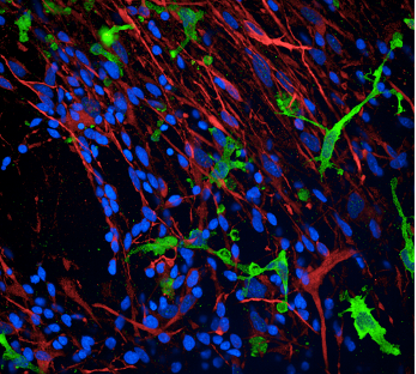

UK DRI at Cardiff

At the UK DRI at Cardiff, we're exploring the function of genes involved in Alzheimer’s, Parkinson’s and Huntington’s disease. We will use this knowledge to identify new molecular targets that can lead us to discover new drugs to prevent or treat dementia.

Contact
The UK DRI at Cardiff is the biggest investment Wales has made in neurodegenerative disease research to date. The Centre brings together scientists from a range of research backgrounds, with expertise in genetics, immunology, computational analytics, synaptic function and DNA repair.
The highly collaborative team bring fresh ideas and perspectives, and are working together to discover new disease mechanisms, identify drug targets, and ultimately deliver new treatments for Alzheimer’s, Parkinson’s, Huntington’s and other neurodegenerative conditions.
Latest news



People
Scientific focus
Read about the scientific focus of the UK DRI at Cardiff







